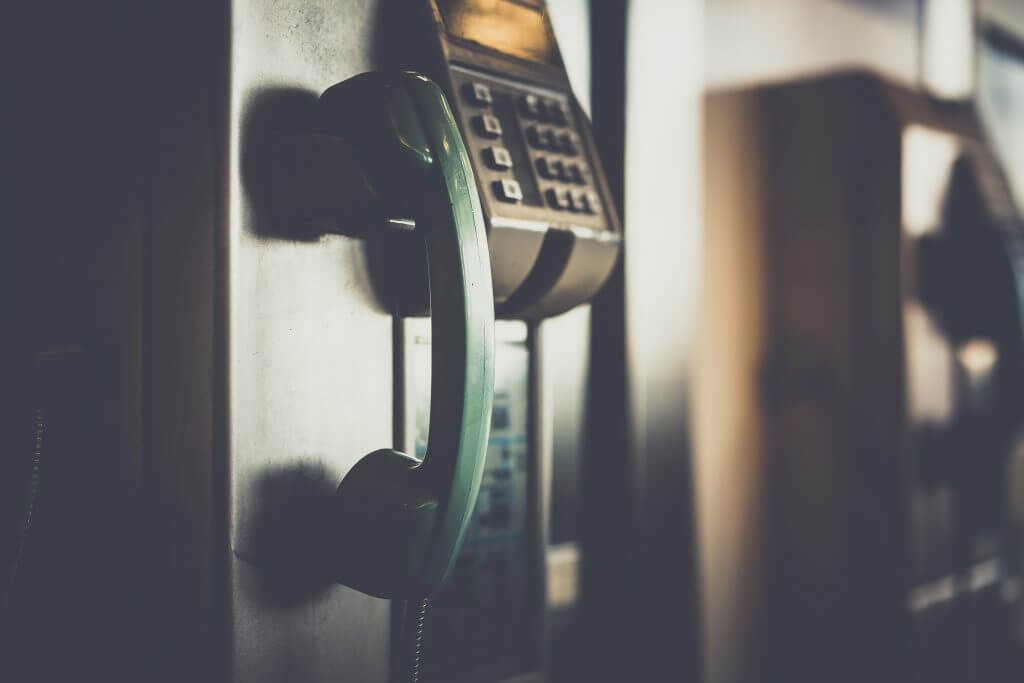Mental Health Hotline Number in Texas for Teens
Teenagers face many challenges, including pressure from peers, academics, and sports. Teens are more susceptible to stress, leading to mental health conditions like depression and anxiety. You can get help for your teen and family by starting with a free mental health assessment at BasePoint Academy. We are here to help and just a phone call away (972) 357-1749.
Texas Mental Health Disorder Hotline Numbers for Teens
There are a number of free mental health hotlines in Texas, many offering confidential 24-hour service for young adults in crisis. For a complete list of resources, visit the Texas Health and Human Services Website.
If you are having an emergency:
Mental health disorders can lead to crisis situations in which you or those around you are in danger. When you need immediate emotional health and psychological distress support, it’s just a phone call away for adolescents in Texas.
What is a Teen Mental Health Crisis Hotline Number?
A teen mental health crisis helpline is a service that provides young adults, their parents, and other family members help during crisis situations. The Texas state mental health crisis hotline has information for young adults, parents, and guardians and offers assistance when a young person needs legal information, safe shelter, or help finding a counselor.
Teens and their families can reach out by chat, text, or phone. Parents and guardians are encouraged to call when they need help helping their teenagers. These free mental health hotline numbers in Texas offer crisis counseling services, trauma support hotlines, and peer support chat lines, depending on the hotline number you call. Teenage challenges are unique to adolescent development. It is important to reach out for help when you need it.

Teen Mental Health Admissions and Intake
Our complimentary assessment with a licensed clinician will provide you with a recommendation for the appropriate level of care for your teen struggling with mental health. We can also check your insurance coverage levels.
Call us today to schedule a complimentary same-day assessment at (972) 357-1749 or complete our inquiry form.
Free Assessment for Rehab Admissions and Intake
Contact BasePoint Academy Today
Contact us today to schedule a free confidential assessment for your teen with a licensed clinician.
You can also get in touch to talk with our mental health experts about treatment needs, care options and your insurance coverage levels.
Call: (972) 357-1749Check Your InsuranceWhat is a Mental Health Disorder?
A mental health disorder is a condition that changes the way that you think, feel, or behave. It is often associated with problems functioning and significant distress. Mental health disorders include anxiety, depression, eating disorders, post-traumatic stress disorder, and behavioral health issues. There are hundreds of types of mental illness that typically improve with treatment.
Substance use, depression, and suicide are important concerns during the adolescent years. According to Mental Health America, 15.08% of adolescents aged 12 to 17 had at least one major depressive episode in the past year and 10.6% of young adults have severe major depression. Suicide prevention hotlines can help.

Does BasePoint Academy Accept health Insurance?
We accept most major health insurance providers in Texas and can check your treatment coverage levels on your behalf
TEENAGE MENTAL HEALTH TREATMENT CENTERS NEAR DALLAS, TEXAS
Base Point Academy has several treatment facilities in the Dallas-Fort Worth area, including in Arlington, Forney, and McKinney, Texas. Each of these luxury facilities offers the same level of care from licensed mental health professionals whose focus is providing teenagers with the tools and resources they need to heal and support sustainable recovery from depression and other mental health conditions.
- Arlington, Texas: 3900 Arlington Highlands Blvd, Suite 237, Arlington, TX 76018
- Forney, Texas: 713 W Broad St, Suite 200, Forney, TX 75126
- Frisco, Texas: 8275 Judges Way, Suite 100I, Frisco, TX 75036
- McKinney, Texas: 4733 Medical Center Drive, McKinney, TX 75069

When Can I Call a Mental Health Hotline Number?
You can call a teen hotline anytime you need emotional crisis intervention, are under a great deal of stress and feel you cannot cope, or are afraid you may hurt yourself or someone else. In other words, you should call a mental health emergency line when you need help.
Some Lines are Open 24 Hours a Day, 7 Days a Week
It is important that a mental health hotline number be available during times when it’s most likely someone will call. Since mental health crises are impossible to schedule, many hotlines operate 24 hours a day, 7 days a week, including holidays. However, as with any other business, you may have better options if you call during daytime hours.
Texas Teen Hotline for Depression
The teenage years are turbulent emotionally and mentally. Adolescent behavior is often driven by unbalanced hormones and brain development. It can be difficult to recognize when the behavior you’re seeing is not normal teenage behavior. Teen depression is a serious health problem that causes persistent feelings of sadness over two weeks or more.
Adolescents can get irritable, experience altered sleep patterns, weight gain or weight loss, digestive problems, hopelessness, and trouble concentrating and making decisions. The symptoms of depression can create increased stress and further affect your mood or teenage emotions. Adolescents who believe they are experiencing depression can call to speak to someone on a depression hotline in Texas. Some specialize as a depression hotline in Texas or have volunteers who are particularly adept at helping people with depression on the emotional support line.
Texas Teen Hotline for PTSD
Post-traumatic stress disorder (PTSD) does not go away by itself. Typically, a person who develops PTSD has experienced or witnessed a traumatic event such as abuse, sexual violence, loss of a loved one, or an accident. Teenagers can experience bad memories that are called flashbacks. These make it seem that the event is happening again.
PTSD can lead to bad dreams, social anxiety, becoming more easily nervous and jumpy, sensitive to sound and easily startled, and changes in mood. These symptoms are difficult to live with and can trigger greater feelings of anxiety or depression. You can call a Texas talk therapy hotline for PTSD and speak with a volunteer who can guide you through finding help to reduce your symptoms.
Texas Teen Hotline for Bipolar Disorder
Bipolar disorder is a mental health condition that triggers extreme ups and downs in mood and energy. The disorder typically cycles between low-energy and high-energy moods, also called mania. While nearly everyone has ups and downs in their mood, people with bipolar disorder have extreme mood swings that affect their energy, thinking, and behavior.
During a depressive episode, your teen has symptoms that are typical of depression with little to no energy, feeling down, loss of concentration, alterations in sleep and appetite, and being indecisive. During manic episodes, they may engage in risky behavior, become overly sexual, jump rapidly from task to task, and have a very short temper. Teenagers with bipolar disorder and parents and guardians should utilize the services of a mental health disorder hotline to help find counselors and get the support they need.
Texas Teen Number for Anxiety Disorder
It’s normal for everyone to feel anxious at times. But sometimes, that anxiety gets so intense that it’s more than your teenager can cope with. Teenagers with anxiety disorders can feel anxious even when there is no overt threat. Symptoms can include worrying about bad things that could happen and feeling more anxiety than is usual in the situation.
You may find your teen needs others to keep telling them that everything is okay. People with anxiety disorders will do things to try to get rid of the feeling, such as avoiding situations that make them feel anxious or turning to substances. Sometimes the anxiety gets so intense they cannot calm down. Teenagers, family members, and friends can call an anxiety hotline in Texas for help.


Are Mental Health Teen Hotlines Free?
Many mental health teen helplines are free to call, including BasePoint Academy. Most mental health hotlines are operated by trained volunteers who have at one time or another been in the same position that you are. The hotlines are typically supported through donations or grant money and are available 24/7/365.
Contact BasePoint Academy Today
Contact us today to schedule a free confidential assessment for your teen with a licensed clinician.
You can also get in touch to talk with our mental health experts about treatment needs, care options and your insurance coverage levels.
Call: (972) 357-1749Check Your InsuranceTeen Female Mental Health Hotline Number
Irritability is a common trait in adolescent girls, which is thought to be predictive of mood disorders. Data indicates that girls who are irritable have a higher rate of depressive and manic symptoms than those who were not irritable. Adolescent girls have a unique set of challenges that they can get help for on a teen female mental health hotline.
Teen Male Mental Health Hotline Number
Many adolescent males feel alone or sometimes feel like they hate themselves. It’s important to recognize that there are adults who care about what’s happening. Young men who are struggling can tell a parent or another adult they trust, or call a teen male mental health hotline number for help finding a counselor, safe housing, or someone to talk to.
What Questions Will I Be Asked If I Call A Hotline Number?
Many teen crisis hotline phone numbers are free and confidential, which means they do not need to check your insurance. While each uses a different approach to connect with the caller, there are generally questions that you can expect will be asked if you call a hotline number. These include:
- What’s your name? Many hotline numbers allow you to remain anonymous if you wish. Knowing and using your name helps you and the hotline volunteer connect.
- Why have you called the hotline today? To get help, the volunteer on the other end of the line needs to know what you’re feeling and why you’re calling.
- Are you in immediate danger? This helps the hotline volunteer determine if you need immediate intervention to prevent a crisis.
- Have you thought about self-harm or suicide?
When a caller answers yes, the volunteer will ask follow-up questions to assess your immediate risk. - Have you been diagnosed with a mental health condition? Knowing your background and history of mental health conditions can help guide the conversation and ensure you get the best care possible.
- Are you taking any medications? The hotline volunteer uses this information to assess any potential interactions with other medications or drugs and side effects.
- Is there a history of substance abuse or addiction? While this information may not be relevant to why you make the phone call, it helps provide insight into the immediate needs and can guide the conversation.
- Tell me about your current support system, like friends and family. In the middle of a mental health crisis, it can be difficult to think critically about your resources and who you can turn to. Sometimes having someone ask you these questions can help you think more clearly about your situation.
- What strategies have you tried so far? This helps the hotline volunteer understand what you’ve tried so they aren’t repeating a strategy that has not been successful for you.

Dallas, Texas Based Mental Health Hotline Numbers for Teens
Knowing that there is help available on the other end of a phone call can sometimes be enough support to get you through an immediate mental health challenge. BasePoint Academy mental health professionals encourage you to contact us or another hotline when you need help. The following are some of the mental health hotline numbers for teens in Dallas, Texas, but this is not an exhaustive list.
BasePoint Academy
- Phone: (972) 357-1749
- Website: https://basepointacademy.com/free-assessment/
The Suicide and Crisis Center of North Texas
- Contact: 214-828-1000 or 800-273-TALK (1-800-273-8255)
- Website: https://www.sccenter.org/
North Texas Behavioral Health Authority (NTBHA)
- Contact: 24/7 crisis hotline at 866-260-8000
- Website: https://ntbha.org/
Youth and Family Counseling
- Contact: 972-724-2005.
- Website: https://counselingforall.org/
Mental Health America of Greater Dallas
- Contact: 214-871-2420
- Website: https://mhadallas.org/
Dallas Metrocare Services
- Contact: 24/7 crisis helpline at 214-743-1200
- Website: https://www.metrocareservices.org/
Teen Mental Health Hotline Guide
Teen Mental Health Statistics in Texas
- For example, in 2016, 75% of children with depression also had anxiety and 47.2% had behavioral problems.
- Depression and anxiety have increased over time with 36.7% of adolescents reporting persistent feelings of sadness and hopelessness, and 18.8% seriously considered attempting suicide.
- According to Mental Health America, roughly 60% of youth with major depression did not receive mental health treatment and only 27.2% of those with severe depression received some consistent treatment.
- According to Mental Health America, 15.08% of adolescents aged 12 to 17 had at least one major depressive episode and 10.6% of youth had a severe major depression.
Contact BasePoint Academy Today!
Has your teen exhibited any of the symptoms discussed here? Does your teen have any of the risk factors outlined above? If you are concerned about the mental health of your teenager, it’s time to contact BasePoint Academy, to discuss a treatment plan for your teen.








